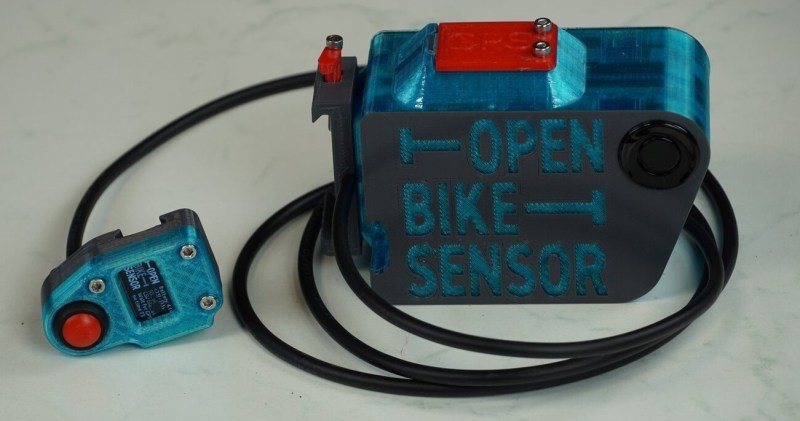
Cycling is fun, healthy, and good for the environment. But unfortunately it’s not always the safest of activities, as inconsiderate drivers can be a significant hazard to cyclists. Several countries, including Germany, France, and Belgium have introduced legislation mandating a minimum passing distance of at least 1.5 meters between cars and bikes. Enforcing such a rule is tricky however, and without accurate data on average passing distances it’s hard to know how many drivers are following it.
Enter OpenBikeSensor, an open-source hardware and community science project designed to gather exactly this information. Currently in its prototype phase, it aims to make a simple bike-mounted sensor that measures the lateral distance to any passing vehicles. The resulting data is collected online to generate maps highlighting danger zones, which can ultimately be used by city planners to improve cycling infrastructure.
The hardware is based around a set of ultrasonic sensors that measure the lateral distance to any large object. A GPS module keeps track of the bike’s location, while an ESP32 reads out the data and stores it onto an SD card. The user interface consists of a handlebar-mounted display that shows the system’s status. There’s also a button that the user needs to press any time they are passed by a vehicle: this will trigger a measurement and log the location. Once back home, the user can connect the OpenBikeSensor to their WiFi network and download their trip data.
The initial results look promising, and any project that gets people cycling and tinkering with electronics at the same time is worth looking into. It’s not the first time we’ve seen bike-mounted sensors either: people have designed their own sensors to measure air pollution in South America, or simply their own bike’s speed or tire pressure.
OpenBikeSensor Measures Close Calls
Source: Manila Flash Report
0 Comments